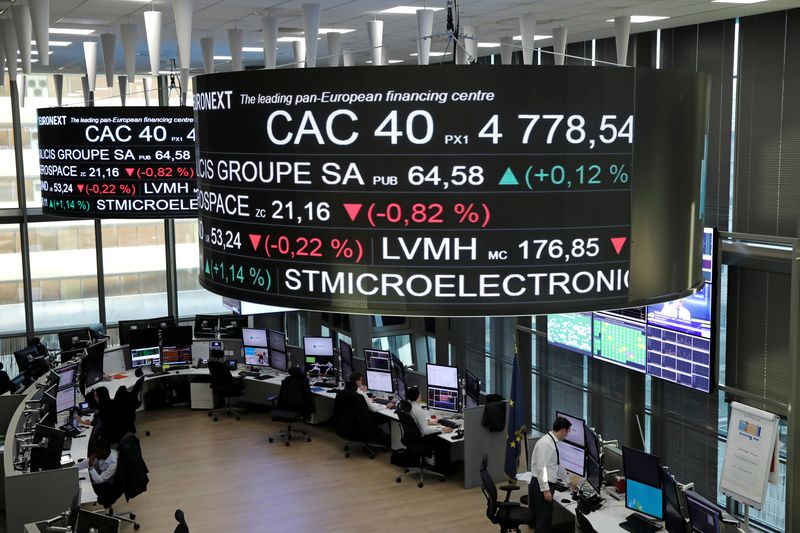
European stocks edge higher on final trading session of 2024
Investing.com – European stock markets inched higher Tuesday, in thin holiday-impacted volumes on the final reading session of the year.
At 04:40 ET (09:40 GMT), the CAC 40 in France gained 0.3% and the FTSE 100 in the U.K. rose 0.2%, while the DAX index in Germany was closed.
Trading volumes were limited early in the session, with bourses in Italy and Switzerland joining Germany in shutting on New Year’s Eve, while those in France, Spain and the UK set for an early close.
European underperformance
The main European indices have struggled in the final quarter of the year, weighed by political uncertainties, a slowing European economy and climbing bond yields, with the European averages tending to underperform their US rivals.
The benchmark S&P 500 is up nearly 24% on Wall Street in 2024 while the broad-based pan-European STOXX 600 is up just 5.4%.
German stocks have outperformed broader European markets this year with a near 19% jump, the UK’s FTSE 100 is on course for a near 5% rise, while France’s CAC 40 has underperformed, falling nearly 3% year-to-date.
Eurozone manufacturing PMIs due
The economic data slate is largely empty Tuesday, and the focus will quickly turn, after Wednesday’s Europe-wide holiday, to the release on Thursday of manufacturing PMI data for the European region as a whole.
The manufacturing PMI release for the eurozone in December is expected to show the sector remains deeply in contraction territory, suggesting more pain ahead for European economies.
The European Central Bank cut interest rates earlier this month and signaled more cuts ahead as economic growth in the region stagnates.
Crude receives Chinese growth boost
Crude prices rose Tuesday, boosted by signs of growth in Chinese manufacturing activity, but are on track to end lower for a second consecutive year.
By 04:40 ET, the US crude futures (WTI) climbed 0.7% to $71.47 a barrel, while the Brent contract rose 0.6% to $74.41 a barrel.
China’s manufacturing sector expanded in December but at a slower-than-expected pace, marking its third straight month of expansion as a raft of fresh stimulus measures provided support.
The outlook for oil demand largely hinges on the hope that China, the world’s largest oil importer, can revive its economy, especially as there are concerns about a potential oversupply due to expected increases in production from non-OPEC countries.
The Brent benchmark is still on course for a loss of around 3% in 2024, while the WTI contract is largely unchanged over the course of the year.

